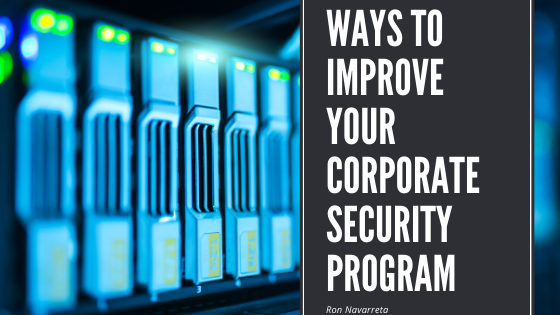Cybercrime is a very real threat, and criminals get smarter every day. Anti-attack software is constantly assessing new risks and updating databases to combat the onslaught of threats against big data from corporations, as well as individuals. There are several ways to improve this ever-changing landscape. An IT security officer needs to understand the importance of never taking a breather in the fight against cybercrime.
For many small businesses, the problem often lies in human error. Poor training of employees can lead to a careless opening of an emailed link which can cripple a business for months and cost thousands of dollars. A chain is only as strong as its weakest link. Humans and machines need to work together in the line of defense against hackers. Because of this, not only should every new hire undergo corporate security training, but current employees should attend refresher courses. There is only so much an IT department can do regarding firewalls and antiviral software. Employees need to take responsibility as well.
Installing a network security appliance (NSA) is not going to solve all your problems but it is an extra line of defense at the gate, per se. All data traffic, both in and out, must pass through the firewall. In addition, having each individual computer running anti-malware software helps in real-time if an untrustworthy attachment is opened. None of this is effective, however, unless everything is constantly updated and has the most recent database.
Any user access should have at least two-factor authentication. This prevents a large number of attacks that leave a user account vulnerable to hackers who have identifying information. The more levels of authorization hoops a criminal has to jump through, the harder it becomes. In addition, user passwords should be generated by a secure randomizing program that makes it virtually impossible for a human to guess. Even a hacking program would face enormous difficulty cracking a strong enough password. In addition, passwords are not meant to be permanent. As much as your employees might complain, it is a necessary evil to swap out old passwords for new ones.
If your company is breached, having a backup of the most recent snapshot of data might mean the difference between recovering or shutting down. Data is the most important commodity for most companies, and if there’s a backup to restore, that might help get back on track.

